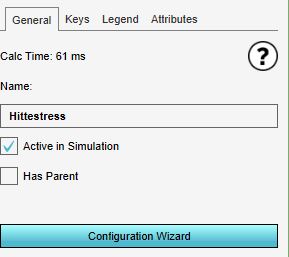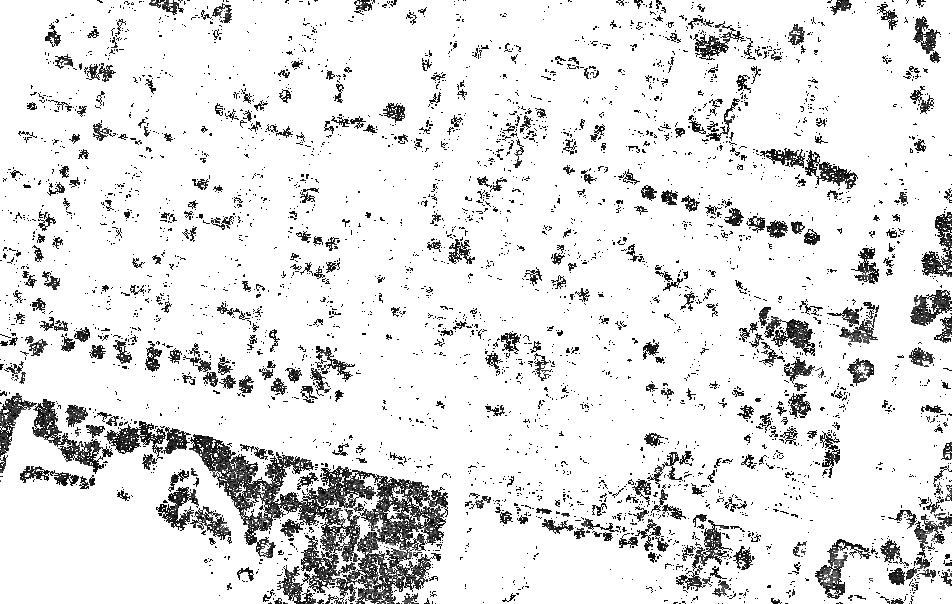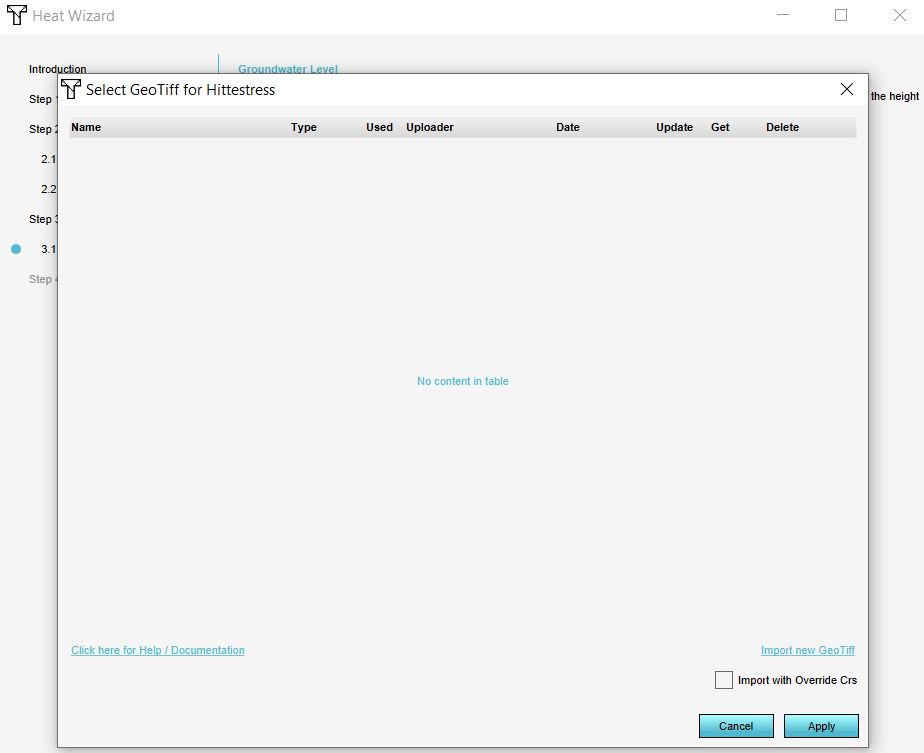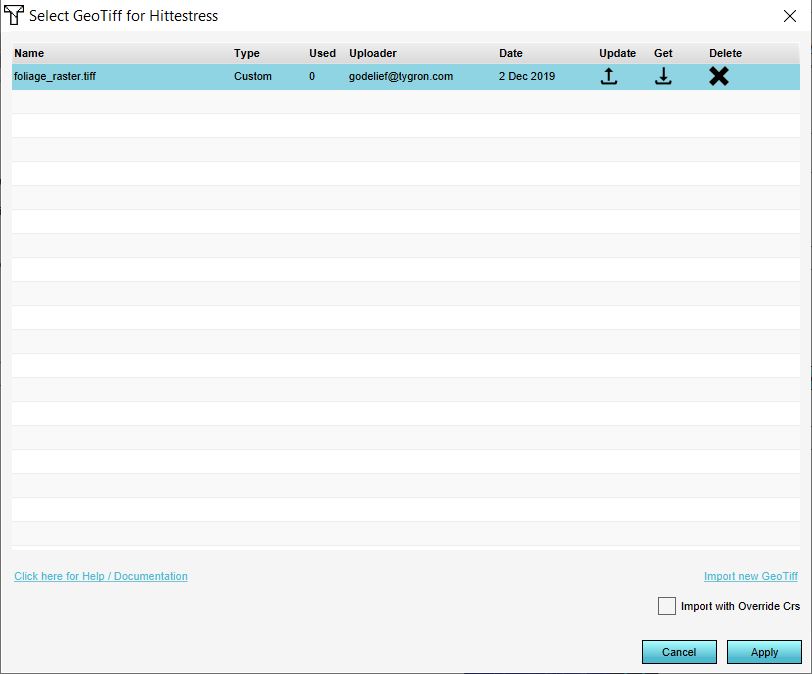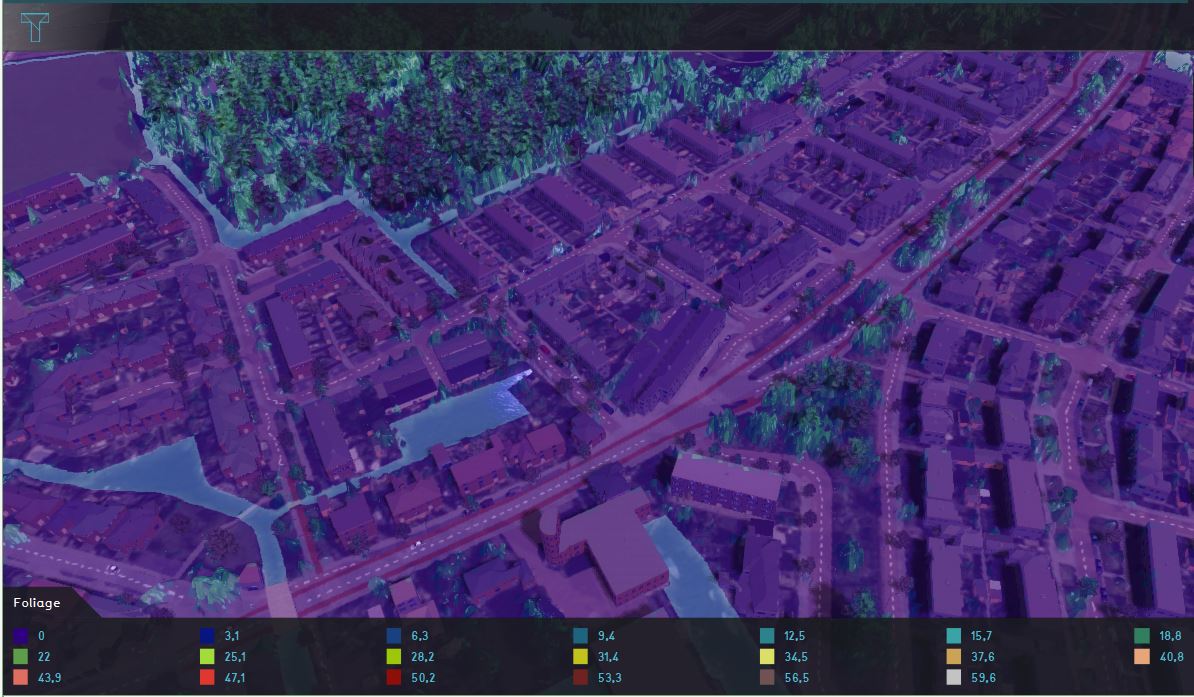How to import a foliage height GeoTIFF: Difference between revisions
Jump to navigation
Jump to search
(Created page with "{{Editor steps|title=import foliage height areas in the Heat wizard |Add the Heat Stress overlay |Open the Configuration Wizard |Choose the DPRA model |Proceed and in step 3 c...") |
No edit summary |
||
| (27 intermediate revisions by 5 users not shown) | |||
| Line 1: | Line 1: | ||
{{Editor steps|title=import foliage height | <youtube>wYH1-6j3op4</youtube> | ||
|Add the Heat Stress overlay | |||
|Open the Configuration Wizard | {{Editor steps|title=import a foliage height GeoTIFF | ||
|Choose the DPRA model | |||
|Proceed and in step 3 choose Use foliage height | |Add the [[Heat_stress_(Overlay)|Heat Stress overlay]]. | ||
|In step 3.1 choose | |Open the Configuration Wizard. | ||
|Click on the button | |Choose the [[Heat_DPRA_Module|DPRA model]]. | ||
| | |Proceed and in step 3 choose Use a foliage height [[GeoTIFF]]. | ||
| | |In step 3.1 choose select a foliage height GeoTIFF. | ||
|Click on the Import button. | |||
|In the new panel that pops up, import your GeoTIFF. When the file is uploaded, click on the Apply button. | |||
|Proceed with the Heatstress Configuration Wizard. | |||
}} | }} | ||
<gallery mode=nolines> | <gallery mode=nolines> | ||
<gallery mode=nolines> | |||
File:Heat_overlay.JPG | |||
File:Heat_wizard.JPG | |||
File:Wizard_dpra.JPG | |||
File:Foliage_raster_data.JPG | |||
File:Import_wizard_geotiff.JPG | |||
File:Import_foliage_raster.JPG | |||
File:Apply_foliage_raster.JPG | |||
File:Proceed_heat_wizard.JPG | |||
File:Foliage_raster_data_in_platform.JPG | |||
</gallery> | </gallery> | ||
= | {{article_end | ||
*The | |notes=*The GeoTIFF needs to contain the foliage height, relative to the terrain height. Use a value of 0, <0 or a nodata value for the pixels where there is no foliage. | ||
* | *The height of the already present tree [[Buildings]] are ignored when choosing to import and use the foliage height GeoTIFF. | ||
|seealso=*See also the [[Foliage_height_calculation_model_(Heat_Overlay)|Foliage height calculation model]] to know more about how the foliage height is used in the [[Heat_DPRA_Module|DPRA heat module]]. | |||
* For the tutorial on configuring the [[DPRA_Heat_Module|default heat stress overlay]], see the [[Tutorial_Heat_Overlay_(Heat_Overlay)|heat stress overlay tutorial]]. | |||
For the tutorial on | }} | ||
[[Category:How-to's]] | |||
Latest revision as of 15:24, 30 January 2024
How to import a foliage height GeoTIFF:
- Add the Heat Stress overlay.
- Open the Configuration Wizard.
- Choose the DPRA model.
- Proceed and in step 3 choose Use a foliage height GeoTIFF.
- In step 3.1 choose select a foliage height GeoTIFF.
- Click on the Import button.
- In the new panel that pops up, import your GeoTIFF. When the file is uploaded, click on the Apply button.
- Proceed with the Heatstress Configuration Wizard.
Notes
- The GeoTIFF needs to contain the foliage height, relative to the terrain height. Use a value of 0, <0 or a nodata value for the pixels where there is no foliage.
- The height of the already present tree Buildings are ignored when choosing to import and use the foliage height GeoTIFF.
See also
- See also the Foliage height calculation model to know more about how the foliage height is used in the DPRA heat module.
- For the tutorial on configuring the default heat stress overlay, see the heat stress overlay tutorial.
